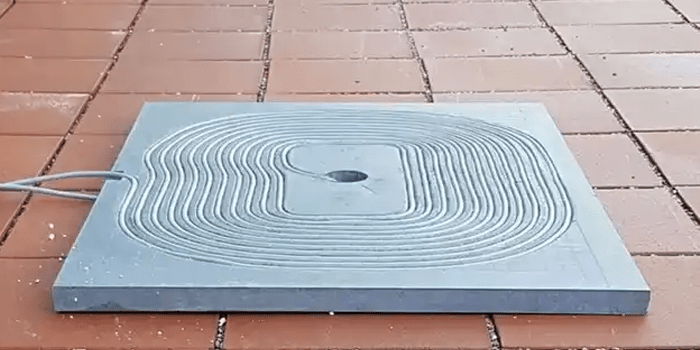Connected Kerb brings wireless charging to the UK
Wireless charging is coming to existing charging points in the UK. After sealing a partnership with the German induction technology specialist Magment, Connected Kerb is going to bring wireless EV charging to the UK. The inductive charging plates will be installed on UK streets and in carparks.
The deployment of the inductive charging plates will begin within the next two months. Drivers will then be able to charge their electric vehicles by parking over the inductive pad sunk into the road. No plugs or cables are necessary.
Connected Kerb’s CEO, Chris Pateman-Jones said, “Induction charging will arrive faster than perhaps many people think. Vehicle manufacturers are increasingly including induction charging technology in their new models, but at present, there are only a handful of induction-enabled EV charge points. We aim to change that. We’re delighted to be leading the charge in this exciting area with the team at Magment.”
Connected Kerb now has the advantage of being able to provide induction capabilities within its existing charge points. Installing the inductive plates can easily be carried out as a simply upgrade to existing charge points.
Pateman-Jones continued, “Importantly, in the short term, induction opens up EV for disabled people, who are currently excluded from EVs by trailing cables and accessibility. Longer-term, induction charging will be the path to ubiquitous electrification of all parking bays without the street furniture and cable clutter that dominates EV charge point technology today.”
Inductive charging is possible with the use of an induction coil to generate an alternating electromagnetic field from within a charging base. A second induction coil in the vehicle converts the electromagnetic field back into electricity. This allows charging to be done without needing a direct physical connection to the vehicle.
Magment’s CEO, Mauricio Esguerra commented: “We like the way in which supporting induction charging becomes a logical upgrade with CK’s technology, not a new infrastructure build.”
Until now, inductive charging trials in the UK have been primarily centred around electric buses, so that they can charge at bus stops or depots. In Milton Keynes, a pilot project allowed the council to discover further use of the technology and expanded use cases to include smaller vehicles such as taxis, but also private cars.
The deployment of Connected Kerb inductive charging internationally will start in the middle of next year.





0 Comments